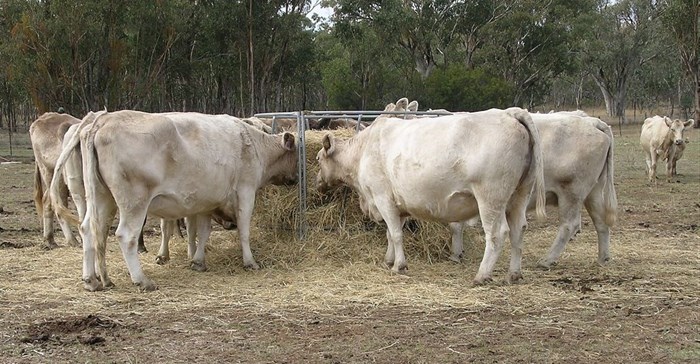SA is still exporting maize, despite not being able to meet local requirements, which is worsening the shortage, and contributing to the high cost of the crop, meat organisations told MPs yesterday. The deterioration of the rand-dollar exchange rate has contributed to the higher price of imported maize. The absence of a grain reserve makes users vulnerable to escalating prices.
Representatives of the South African Poultry Association (Sapa), Red Meat Producers' Organisation (RPO) and the South African Pork Producers' Organisation (Sappo) briefed Parliament's portfolio committee on agriculture, forestry and fisheries about the effect of the drought on the meat production sector.
Users of maize will have to pay the price
Sapa's Andy Crocker, who is MD of Meadow Feeds, said SA would have to import a record quantity of white and yellow maize this year, amounting to an estimated 3.5 million tonnes. It is the users of maize who will have to bear the additional cost.
"SA is a net exporter of maize, but what we often injudiciously do is to export maize when we do not have enough to meet our own requirements," Crocker said. "We may have had enough grain, but we don't anymore."
Sapa estimated that domestic users of maize in all agricultural sectors would pay an additional R22bn last year and this year, due to the higher prices, while the revenue of maize producers would remain relatively unchanged.
Government called on for support
Sapa CEO Kevin Lovell called on the government to control the export of maize and assist in the build-up of a strategic grain reserve, which would ensure domestic supply and help keep the domestic maize price as close to the export parity price as possible. SA imported on average about 1.6-million tonnes of maize on a sustained basis, he said.
Sapa also urged the government to prevent any increase in the maize tariff and to remove the tariff on soya imports.
The association has proposed the creation of a state-funded insurance scheme for grain farmers to lower costs and reduce the risks of farming. Maize farmers are expected to produce about half the five-year average tonnage this year - well short of local requirements and, therefore, requiring further imports.
The cost of feed
Sapa senior executive Charlotte Nkuna noted that maize exports in 2014 pushed up the price paid by local users by about R450 per tonne. She said feed costs represented about 70% of the cost of chicken and egg production and when they increased, profit margins were squeezed. Imports of feed added significantly to costs, which poultry producers were not able to recoup from price-resistant consumers. At the same time, profit margins in the industry were very thin and it was not able to absorb all these extra costs.
"Exports are needed, but the free market system can also lead to some undesired outcomes," she said. Nkuna said the drought would increase feed costs for the broiler industry by about R3.6bn while the new brining regulations would add an estimated R4.5bn to costs. Egg producers faced an additional R1bn in feed costs.
Meat industry hit hard
Sappo chairman James Jenkinson told MPs that the pork industry faced a year-on-year increase in the feed price of more than 70% this year. Small-scale farmers would be particularly hard hit, and government intervention was urgently needed to assist them. "Farmers are making a loss, and this will continue during 2016. Consumers will pay more for pork. It is expected that the price to the consumer will increase by at least 25%. The producer price is expected to immediately go up by at least 15%," Jenkinson said. He said the organisation expected the industry to shed at least 10% of its jobs.
RPO vice-chairman Pieter Prinsloo estimated that SA would lose 5% of its 13-million national beef herd. He noted there had been a 28% increase in cattle slaughters in November and December.
Source: Business Day





































